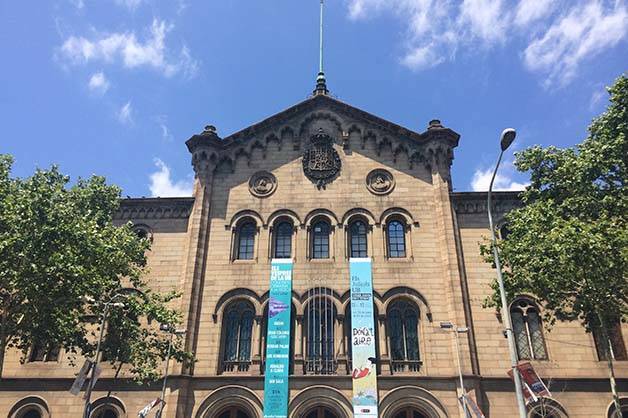Erasmus in Barcelona: our advice for your university exchange

You have applied for an Erasmus or university exchange and you are coming to spend a semester in Barcelona. Great decision! Benvinguts a Barcelona!
Before you embark on your journey, it’s worth working out all the details of your arrival and your set-up in the city. If you’ve seen the film L’auberge espagnole, you will know that some things are easier to organise than others. Here is our advice.
Before you set off on your Erasmus
Have a health check
You don’t need any particular vaccines to go to Spain, but it is a good idea to have a check-up with your GP. Prevention is better than cure!
Also make an appointment with your specialists, it’s a lot easier than trying to find each of the above in a new city. During your Erasmus you might have other things to do than go to the doctor.
Request a European Health Insurance Card
If you are an EU resident, ask for your European Health Insurance Card from your student union or your health insurance provider but don’t leave it to the last minute as it takes 2 weeks to arrive.
The European Health Insurance Card is free and offers a number of advantages. If you fall ill during your Erasmus, it will allow you access to public health services without having to pay.
- Warning: if you go private you will have to pay and then be reimbursed by your health insurance. Repatriation and civil responsibility are also payable by you (unless you have health insurance).
- Good to know: in Barcelona the laws surrounding pharmacies are less strict than in other countries. If you feel ill, head first to the pharmacist before consulting a doctor (you can end up waiting a long time in a public health centre).
Do I need to open a bank account in Spain?

Before leaving check your bank contract: do you have to pay for foreign transactions? Even in the euro zone? Are your withdrawal limits high enough? Can you increase them? Are you thinking of working? Will you rent an apartment in your name (and take on the bills that go with it)? Will you get a bill phone or pay as you go?
Depending on your answers to these questions, you will have to decide wether to open or not a bank account.
Open a bank account
Head to the bank of your choice with your NIE (foreign registration number) and your passport or ID card. Santander and La Caixa have a reputation for being expensive, while ING is totally free. However, it doesn’t have too many branches in Spain as it is an online bank.
Do not open a bank account
If you are coming from the euro zone, and are planning to live in a shared apartment without a job and a prepaid phone card is suitable, you might not need to open an account.
Once you have arrived
Finding accommodation in Barcelona
Finding somewhere to live is top of the list when you arrive in Barcelona, and as it’s a complex subject worth examining in detail, we have devoted an entire article to it.
You might also like to share an apartment: a very widespread practice in Barcelona.
- Student accommodation in Barcelona: rent a room in a shared house or with a host family
- Sharing in Barcelona: how to find shared accommodation?
- Diary of an Erasmus in Barcelona: 10 golden rules for sharing an apartment
Buy a Spanish sim card

If you don’t have a NIE and/or a Spanish account, you will have to opt for a prepaid card.
If you have both, you can sign up to a contract, but remember to check the length. It would be a pity to go on paying it after you’ve left Barcelona.
You can buy sim cards at The Phone House or directly from the operators’ stores (Orange, Movistar, Yoigo, Vodafone…). They are all over the city.
Buy transport season tickets
If you’re using public transport to get to university calculate how much you will spend on it each week to find out which ticket is best for you. You can read our article on transport tickets available in Barcelona here.
If you live in the city centre, remember that it is easy to get around on foot, and can also save you a lot of money.
Choose your classes depending on the language they are taught in
When you arrive in Barcelona you will no doubt be invited to a meeting of foreign students at your university. You will be told about student life there, the clubs and societies organising Erasmus tours, and about your classes.
In most cases, you basically build up your own timetable, choosing the subjects that interest you. But don’t forget that many classes in Catalonia are taught in Catalan. It’s quite close to Spanish but that doesn’t mean it’s so easy to understand and to speak!
You really want to register for certain classes even if they are in Catalan? Challenge yourself! In either case you can write your exams and homework in Spanish.
You can start learning Catalan with our little audio lexicon of Catalan for basic communication. Let’s get to work! 😉

